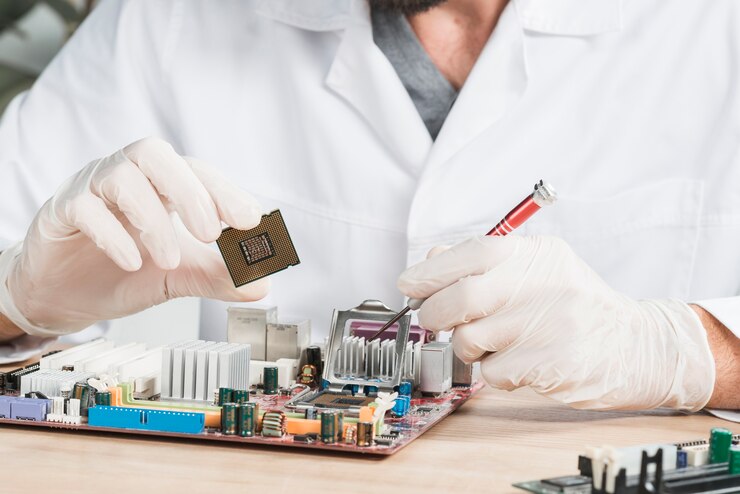When you hear the name Texas Instruments (TI), you might think of calculators or maybe intricate microchips in electronics. TI is a giant in the tech world, always evolving with the times. However, like many tech companies, TI has faced its share of layoffs. Let’s explore how layoffs have played a part in their evolving strategies and what’s been happening recently.
A Brief Look at Texas Instruments
Founded in 1930, Texas Instruments has been a pioneer in the semiconductor industry. Known for its innovation, TI continues to push the boundaries of what electronics can do. From the first transistor radio to advances in digital signal processing, TI has a rich history of breaking new ground. While they are renowned for calculators, semiconductors are TI’s main business—integrated circuits and microcontrollers that power countless devices globally.
Texas Instruments Layoffs 2025
As we step into 2025, TI’s recent layoffs are a significant topic of discussion. While the company remains strong, economic pressures and a strategic refocus have led to downsizing. The company is readjusting its global workforce as part of a broader shift. This realignment is focused on enhancing their core competencies and investing in markets that promise better growth opportunities.
A Detailed Analysis of Texas Instruments 2024 Layoffs
In 2024, TI faced a challenging year with a need to streamline operations. These layoffs primarily impacted divisions less aligned with future growth strategies. The company took careful steps, offering transition support and severance packages to affected employees. TI’s management emphasized that these layoffs were necessary for maintaining financial health, focusing resources where they were most needed. It is a familiar story in the tech sector, where agility is key, and companies must adapt swiftly to changing market dynamics.
Key Points Behind These Layoffs
The main reasons for TI’s layoffs revolve around strategic realignment and economic factors. They are pivoting towards high-growth areas such as the embedded device market. Economic headwinds have also played a role, with global markets experiencing fluctuations, affecting TI’s decisions to cut costs where necessary. There is also a notable trend of optimizing operational efficiency to ensure the company’s resilience in uncertain times.
Are Layoffs Part of a Bigger Industry Trend?
Layoffs in tech are not unique to Texas Instruments. In recent years, many companies have reduced their workforce as part of strategic repositioning. This trend reflects broader shifts in technology focus areas and the need to adapt to new market opportunities. Factors like automation, geopolitical tensions, and economic pressures have forced companies to rethink workforce structures. TI’s layoff decisions fit into this larger narrative of adaptation and transformation within the tech industry.
Texas Instruments Business Model
Texas Instruments operates a hybrid business model, balancing innovation with practical solutions. Their primary focus lies in designing and manufacturing semiconductors for various industries such as automotive, industrial, and consumer electronics. The business model emphasizes developing reliable, energy-efficient products that can be integrated into numerous applications. This versatility has kept TI competitive, although it demands continuous adaptation to industry demands and technological advancements.
Financial Performance Of Texas Instruments
TI’s financial journey has been an interesting one. While they have faced challenges like any major enterprise, their strategic shifts often lead to sustainable financial outcomes. Revenue streams from diverse markets have allowed TI to mitigate regional economic impacts. Their investment in R&D and strategic acquisitions fortifies their market position. Despite the layoffs, TI’s financial outlook remains cautiously optimistic, underscoring the importance of aligning resources with their core objectives.
Conclusion
Texas Instruments continues to be a leader in technology, navigating complex market dynamics with strategic decisions. The recent layoffs, while challenging, are part of a broader plan to ensure long-term success. TI’s ability to adapt, innovate, and invest in growing markets will likely keep it ahead in the industry. As Texas Instruments moves into the future, we can expect them to remain a driving force in technological circles. If you want to learn more about TI’s strategic movements, check out our insightful articles on Business Noted.












